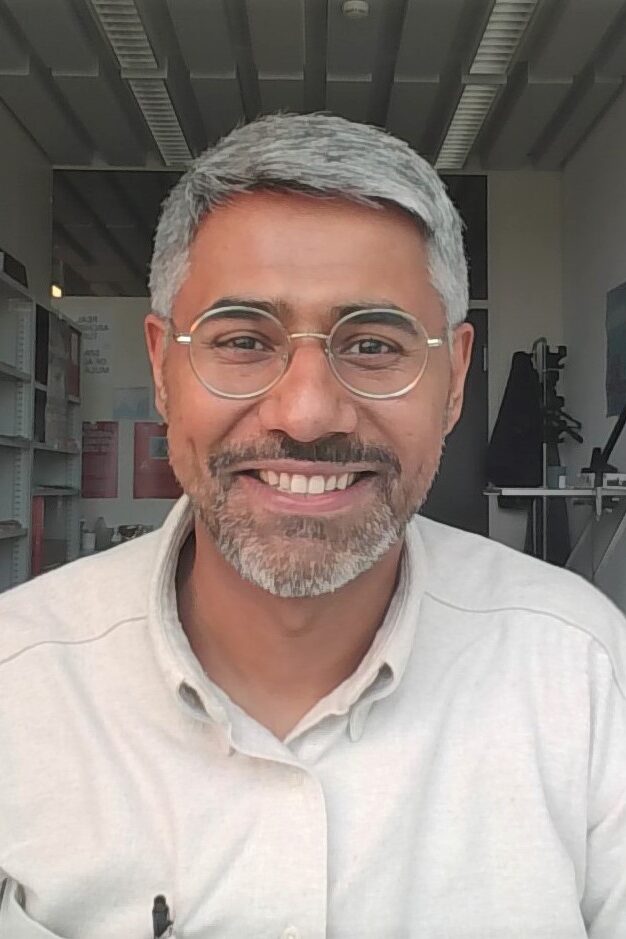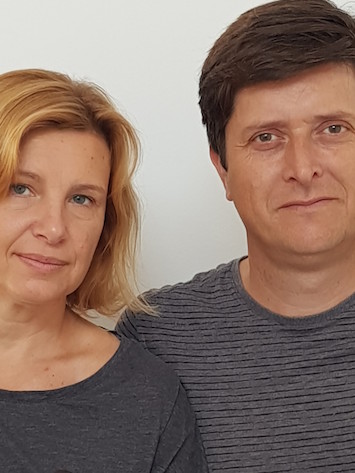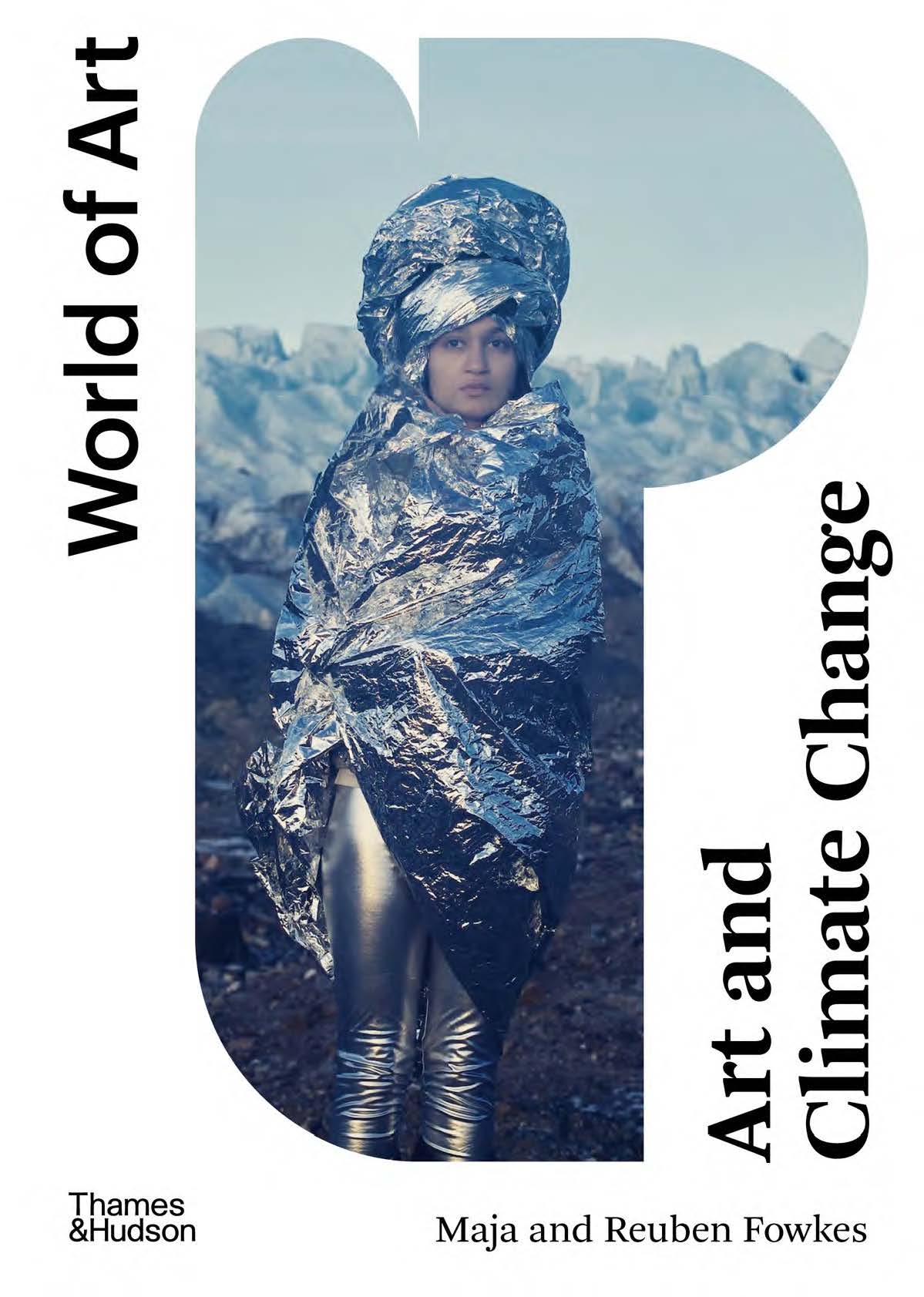The book provides an overview of ecologically conscious contemporary art that responds to today’s environmental crisis, from species extinction to climate change.
Art and Climate Change collects a wide range of artistic responses to our current ecological emergency. When the future of life on Earth is threatened, creative production for its own sake is not enough. Through contemporary artworks, artists are calling for an active, collective engagement with the planet in order to illuminate some of the structures that threaten biological survival.
Exploring the meeting point of decolonial reparation and ecological restoration, artists are remaking history by drawing on the latest ecological theories, scientific achievements, and indigenous worldviews to engage with the climate crisis. Across five chapters, authors Maja and Reuben Fowkes examine these artworks that respond to the Anthropocene and its detrimental impact on the planet’s climate, from scenes of nature decimated by ongoing extinction events and landscapes turned to waste by extraction, to art coming out of the communities most affected by the environmental injustice of climate change.
Featuring a broad range of media, including painting, photography, conceptual, installation, and performance, this text also dives into eco-conscious art practices that have created a new kind of artistic community by stressing a common mission for creators all over the world. In this art history, the authors emphasize the importance of caring for and listening to marginalized and indigenous communities while addressing climate uncertainty, deforestation, toxicity, and species extinction. By proposing scenarios for sustainable futures, today’s artists are reshaping our planet’s history, as documented in this heavily illustrated book.
Episode transcript
Host:

Nitin Bathla
Nitin is a lecturer and postdoctoral researcher at the Department of Architecture, ETH Zürich, where he works as part of the transdisciplinary project on agri-urbanisms at the Chair of Sociology. He also coordinates the Doctoral Programme at the Institute of Landscape and Urban Studies at the Department. His research practice actively combines academic research with artistic practices of filmmaking, and socially-engaged art. He is the director of award-wining film Not Just Roads, which premiered at several important film festivals across the world. Twitter – @nitin_bathla
Our Guests:

Dr. Maja Fowkes and Dr. Reuben Fowkes
Dr. Fowkes and Dr. Fowkes are art historians, curators and co-directors of the Postsocialist Art Centre (PACT) at the UCL Institute of Advanced Studies. Their publications include Art and Climate Change (Thames & Hudson, 2022), Central and Eastern European Art Since 1950 (Thames & Hudson, 2020) and Ilona Németh: Eastern Sugar (Sternberg Press, 2021). Recent curatorial projects include the exhibitions “Colliding Epistemes” at Bozar Brussels (2022) and “Potential Agrarianisms” at Kunsthalle Bratislava (2021). Their research on the “Socialist Anthropocene in the Visual Arts” is supported by a UKRI Frontier Research grant. www.translocal.org

Debjani Bhattacharyya
Debjani holds the Chair of the History of the Anthropocene at the University of Zürich and is the author of Empire and Ecology in the Bengal Delta: The Making of Calcutta (Cambridge University Press, 2018) won the 2019 honorable mention for the best book in Urban History. Her work has been supported by the American Institute of Indian Studies, The History Project funded by the Joint Centre for History and Economics, Harvard University, and Social Science Research Council. She held visiting fellowships at the International Institute of Asian Studies (Leiden), Max-Planck-Institute for Legal History (Frankfurt), and the Shelby Cullom Davis Center for Historical Studies, Princeton University. Her work has been published in the Journal of Social and Economic History of the Orient, Comparative Studies in South Asia, Africa and the Middle East, Economic and Political Weekly, Global Environment, and Modern Asian Studies. She is the editor for History Compass. Her writings have also appeared in The Telegraph, Amrita Bajar Patrika, n+1, The Diplomat, and Somatosphere.
Twitter – @itihaashtag

Tatjana Schneider
Tatjana is Professor for Architectural Theory at Technical University Braunschweig, where she heads the Institute for History and Theory of Architecture and the City (GTAS) and the Collection for Architecture and Civil Engineering (SAIB). Her work – from setting up the architectural workers cooperative G.L.A.S. via Flexible Housing and Spatial Agency as well as running for mayor of Braunschweig in 2021 – is concerned with focusing attention to aspects and mechanisms that explain architecture in context of its political, economic and imperial entanglements. https://www.gtas-braunschweig.de/introducing/detail/tatjana-schneider
Twitter – @tat_schneider
Related Links
Artist on the book cover – https://www.himalisinghsoin.com/we-are-opposite-like-that Climate Activists Throw Soup on Vincent van Gogh’s ‘Sunflowers’ to Protest Fossil Fuels – https://www.smithsonianmag.com/smart-news/climate-activists-throw-soup-on-vincent-van-goghs-sunflowers-to-protest-fossil-fuels-180980958/ Details about the book from the publisher – https://www.thamesandhudsonusa.com/books/art-and-climate-change-softcover

